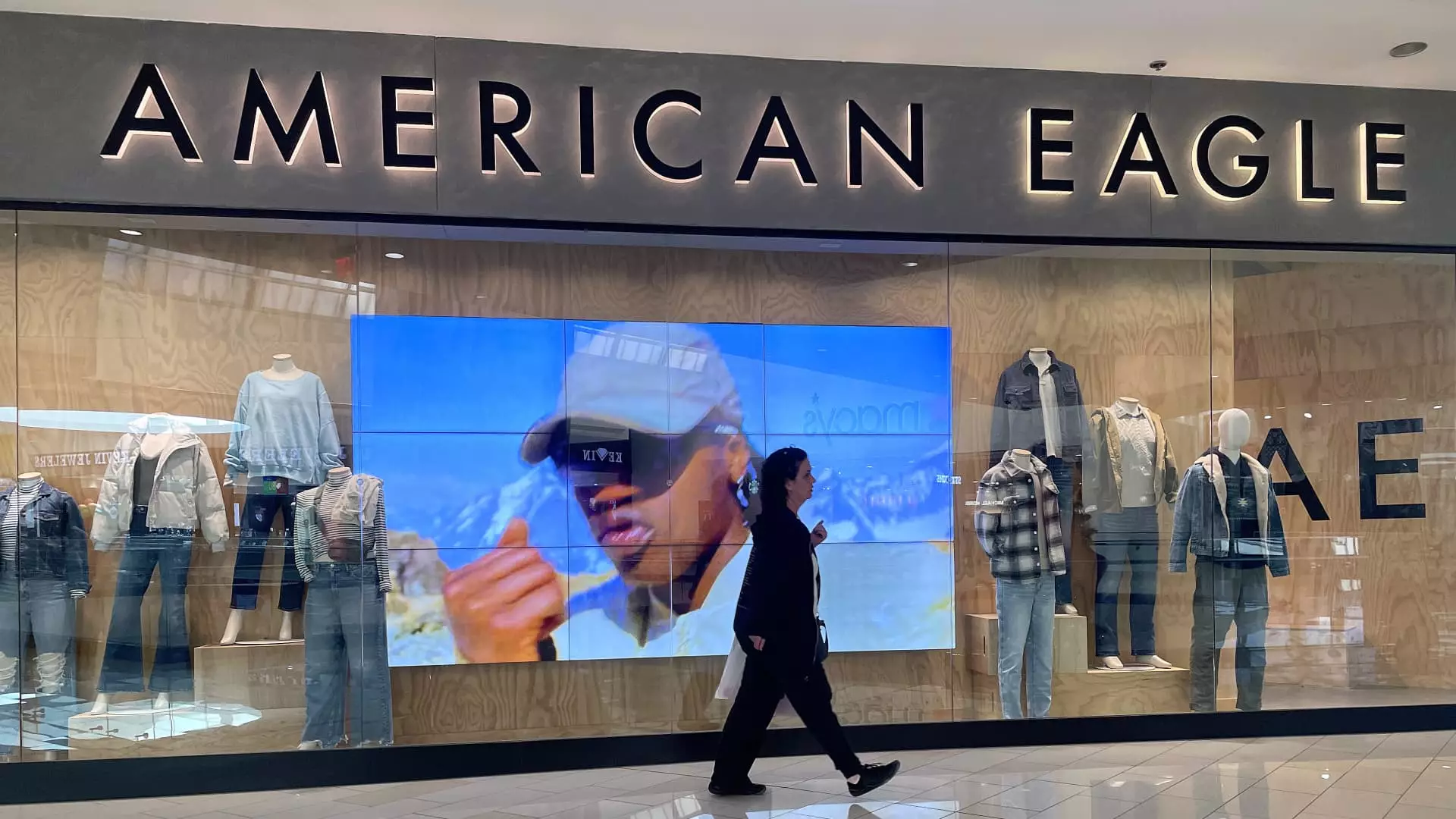In a significant turn of events in the retail sector, American Eagle Outfitters, known for its trendy apparel and accessories, has escalated tensions with e-commerce behemoth Amazon. The contemporary legal dispute revolves around trademark infringement allegations, where American Eagle accuses Amazon of leveraging branding from its subsidiary, Aerie, to promote products that the clothing retailer claims are “inferior quality knock-offs.” This contentious lawsuit, filed in the U.S. District Court for the Southern District of New York, underscores the growing friction between traditional retailers and online marketplace giants.
The Core of the Allegations
American Eagle’s legal complaint elucidates a multifaceted infringement strategy allegedly employed by Amazon. The retailer claims that Amazon engaged in the “flagrant unauthorized use” of its Aerie and Offline by Aerie trademarks. By doing so, Amazon purportedly misled consumers into believing they were purchasing authentic Aerie products when, in fact, they were directed to lower quality imitations. This deceptive tactic not only undermines American Eagle’s brand identity but also dilutes the consumer experience it seeks to foster.
The lawsuit stipulates that American Eagle had intentionally chosen not to partner with Amazon, thereby maintaining Aerie’s distinct brand identity. This assertion raises critical questions regarding online marketplaces’ role in brand representation and consumer trust. The complaint reveals a troubling trend: a shopper searching for Aerie items on Google is redirected to Amazon, where instead of legitimate products, they find a mélange of poorly-crafted imitations.
As American Eagle highlighted in its filings, the results returned from Amazon are not only confusing but also damaging. A customer searching for an Aerie product may unwittingly purchase a product that is neither authentic nor representative of the Aerie brand. The lawsuit cites numerous examples of misspelled trademarks like “Aeries,” “Arie,” and “Aries,” underscoring the deliberate tactics employed to trick customers into making uninformed decisions. This intentional obfuscation can severely damage the brand’s reputation, leading to a loss of customer loyalty—an invaluable asset in the retail market.
Brand loyalty is built over years through consistent quality and customer experience. By allowing inferior products to be associated with Aerie, Amazon is not only undermining American Eagle’s investments in brand development but is also risking consumer trust in the online shopping experience as a whole. This incident highlights a larger concern impacting the online retail industry: as third-party sellers proliferate, the risk of counterfeit goods and misleading representations also rises.
The challenge here is twofold: first, major retailers are wrestling with maintaining brand integrity in the face of counterfeit competition, and second, consumers face the dilemma of discerning authentic products from imitations. When major brands like American Eagle take legal action, it illustrates the crucial nature of protecting intellectual property; their actions are not just about financial recovery but serve as a broader statement on brand accountability.
This case is not isolated; it reflects a growing trend of established brands confronting e-commerce platforms over similar issues. Cases like these could influence future practices in online marketplaces. Historically, companies like Birkenstock and Daimler AG have also expressed frustration, pulling their products from Amazon due to rampant counterfeiting.
For Amazon, the stakes are high. The platform must balance the growing number of third-party sellers while ensuring that counterfeits do not diminish consumer trust. The company has pledged to eliminate counterfeit goods from its marketplace, yet this lawsuit emphasizes the struggle inherent in policing such a vast platform. American Eagle’s pursuit of an injunction and financial damages could unleash broader ramifications for Amazon’s reputation and policy framework in handling trademark rights.
As American Eagle navigates this legal battle against Amazon, the outcome could set a critical precedent for the retail landscape. The company not only seeks monetary compensation but also aims to reaffirm its standing in the ever-evolving interplay between physical retail and e-commerce. The initiatives taken by American Eagle highlight the ongoing struggle for brands to protect their trademarks in an age where online shopping continues to dominate consumer behavior. Ultimately, this case serves as a testimony to the complexities of brand loyalty, intellectual property, and consumer trust within the modern digital marketplace.



Leave a Reply